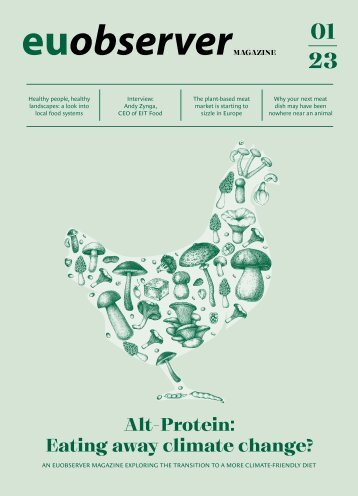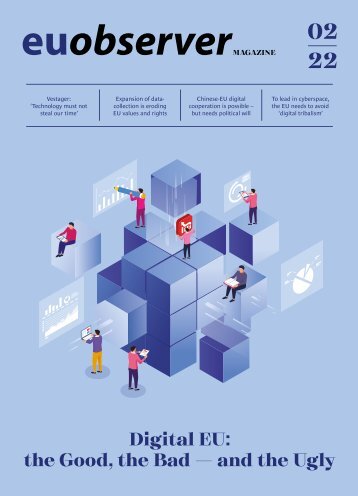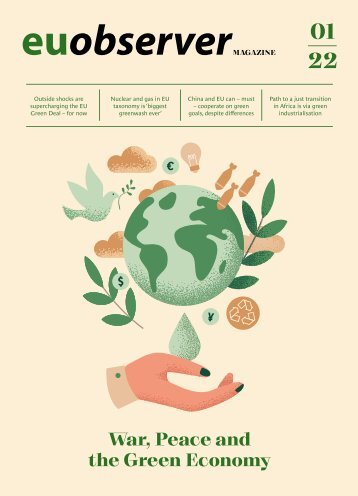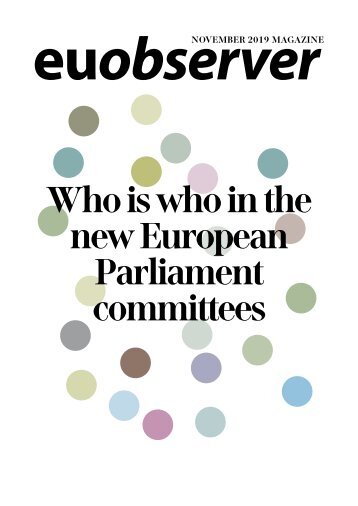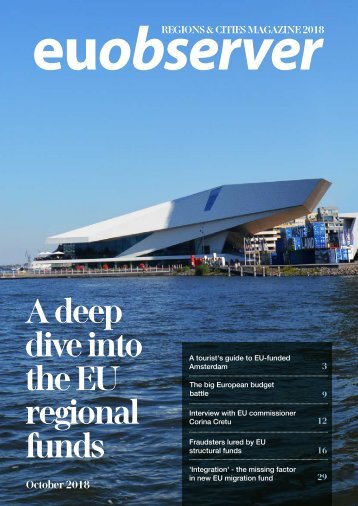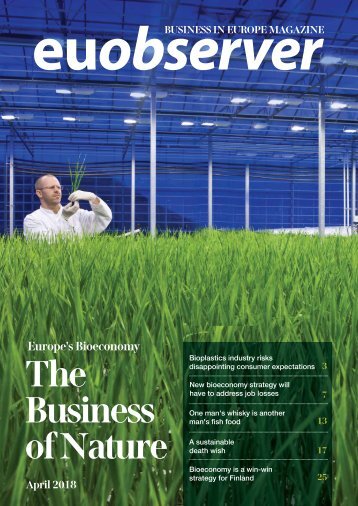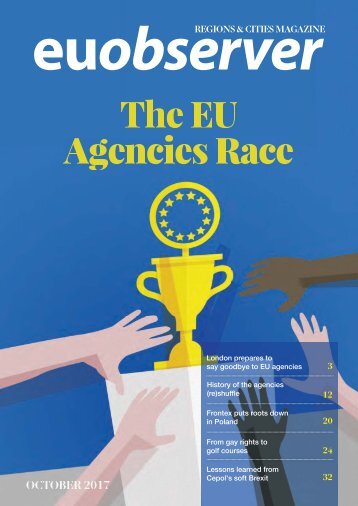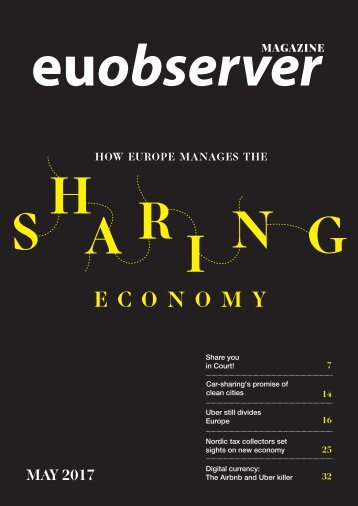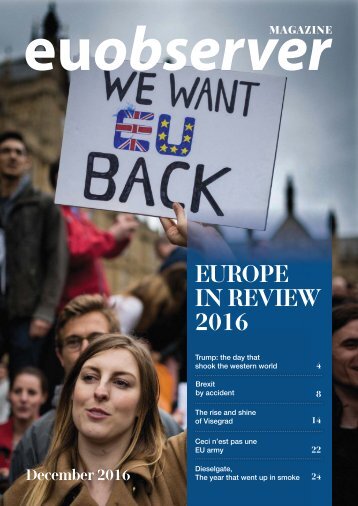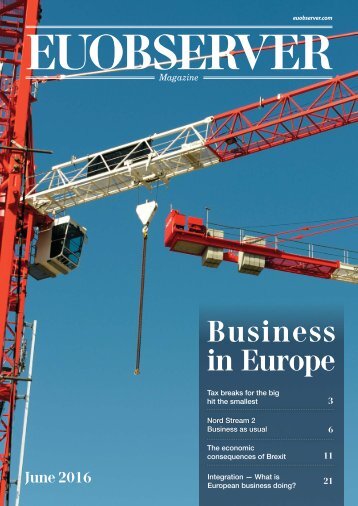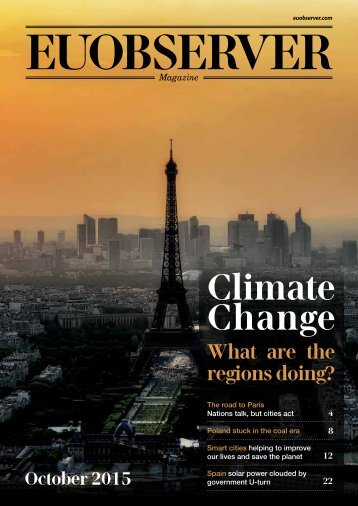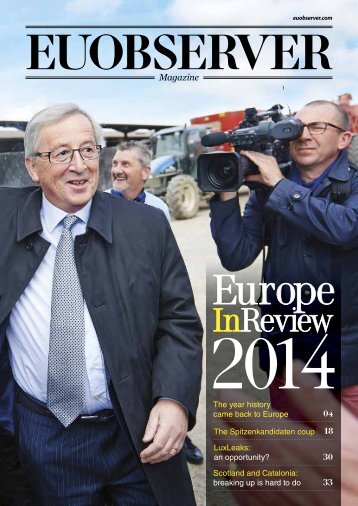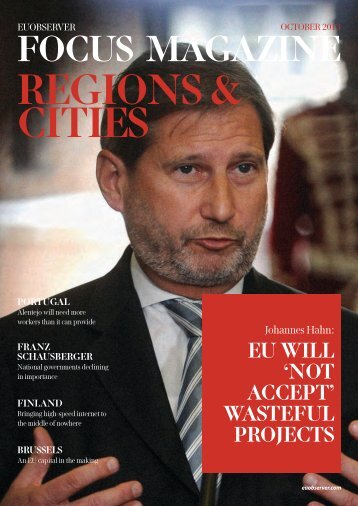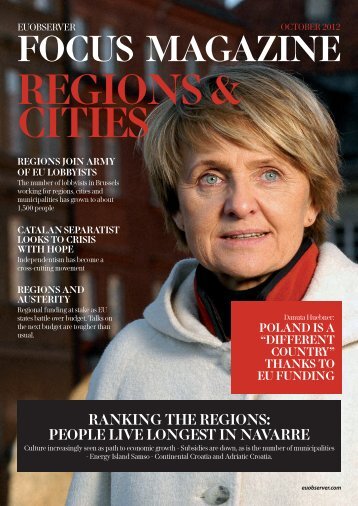Europe's Bioeconomy: The Business of Nature
- Text
- Food
- Nature
- Environment
- Union
- Agriculture
- Forestry
- Science
- Biotech
- Bioeconomy
STAKEHOLDER BIO-BASED
STAKEHOLDER BIO-BASED INDUSTRIES JOINT UNDERTAKING (BBI JU): Helping Europe deliver sustainable everyday products for European citizens The Bio-based Industries Joint Undertaking (BBI JU) is a public-private partnership between the European Union (EU) and the Biobased Industries Consortium (BIC) with a €3.7 billion budget, established to fund projects that will address the need for sustainable industries and everyday consumer products in Europe. BBI JU is leveraging private investment from many industrial sectors using public funding from Horizon 2020. The programme has a key role in de-risking investments from the private sector to encourage research and innovation. This will help structure the bio-based sector for critical mass, essential for market BBI JU projects offer innovative solutions for renewable raw materials and waste. Clothes made of milk that would otherwise be wasted, dishwasher-safe, re-useable coffee cups made from coffee waste, bicycles vehicle tyres made from dandelion rubber are just some of the examples showing the potential of bio-based industries in Europe. The development of these kind of products can pave the way for the creation of new jobs particularly in rural areas and substantially contribute to their development. strong European bio-based industrial raw materials and products. This will help the EU to meet its climate change targets and lead to more sustainable and more environmental friendly socio-economic growth. Learning to use and re-use precious resources in a sustainable way is essential for our secure economic future. the potential of new types of biomass. Innovative value chains within the bio-based sector can provide new outlets for agricultural products and by-products. In this way, sources of income for farmers and rural population can be increased and with the vision of thriving and resilient rural communities in Europe. At the same time, the development of a bio-based sector has the potential to create much-needed jobs in rural areas, and to contribute to more circular, climate-friendly and forestry practices. Access to new and improved biobased everyday products that are comparable or superior to fossilbased ones mean better consumer choices for our citizens. As consumers start to become environmentally ly more aware, the demand for products from sustainable manufacturing processes, including bio-based products is also increasing. High performing advanced bio-based materials offer a broad range of properties and a combined outstanding performance and resistance. BBI JU is working to prove this can be done at commercially viable sustainable levels using home-grown European biomass. BBI JU projects are developing and testing new sustainable production processes and European industries are at the forefront of these advances The bio-based economy is already but there is still a massive potential programme is paving the way to a and competitive society, boosting our future and bringing re bio-based products to our lives. Follow BBI JU on Twitter @BBI2020 Or visit our website www.bbi-europe.eu
One man's whisky is another man's fish food As Scotland's whisky producers look for an alternative to feed their salmon with, one company offers omega-3 rich algae to do the trick. T was littered with petri dishes, conical He was experimenting with ways to encourage algae to grow on various types of waste. Progress was slow. For one, it was harder to get hold of the waste than one might think (very few companies are happy to "pull their shorts down" for their waste to be examined, according to Martin). The set-up was also pretty basic. Still, he managed to use industrial wastewater to grow omega-3 rich microalgae, which could be what you can do without your landlord knowing," he says. Today, Martin sits proudly in the microbial cell laboratory at Heriot-Watt University in Edinburgh, Scotland, surrounded by state-of-the-art incubators and fermenters worth tens of thousands of euros. He is on the cusp of securing the investment he needs (£0.5m, €0.56m) to start pilot-scale trials with Diageo, the world's largest producer of spirits, as well as increasing staff at MiAlgae, the company The plan is to take by-products from the whiskymaking process, called pot ale, add particular strains of microalgae, other secret ingredients, and allow the algae to bloom inside a specially designed 50-litre fermenter. Could these microalgae of his actually turn out to be big business? "This isn't a science project," he tells me on a visit 13 — BUSINESS IN EUROPE MAGAZINE 2018
- Page 1 and 2: BUSINESS IN EUROPE MAGAZINE Europe'
- Page 3 and 4: Bioplastics industry risks disappoi
- Page 5 and 6: Ready for your new adventure in Bel
- Page 7 and 8: NEW BIOECONOMY STRATEGY WILL HAVE T
- Page 9 and 10: The EU's bioeconomy in figures The
- Page 11: Jobs in the bioeconomy in 2014 The
- Page 15 and 16: Photo: IBioIC exp
- Page 17 and 18: A sustainable death wish No one can
- Page 19 and 20: and then shattered into smaller pie
- Page 21 and 22: commission's various directorates-g
- Page 23 and 24: And despite earlier warnings not to
- Page 25 and 26: BIOECONOMY IS A WIN/WIN STRATEGY FO
- Page 27 and 28: GLOBAL SCARCITY OF NATURAL RESOURCE
- Page 29 and 30: Photo: The Humane League No end in
- Page 31 and 32: WTO arbitration panel in Geneva, bu
Inappropriate
Loading...
Mail this publication
Loading...
Embed
Loading...

